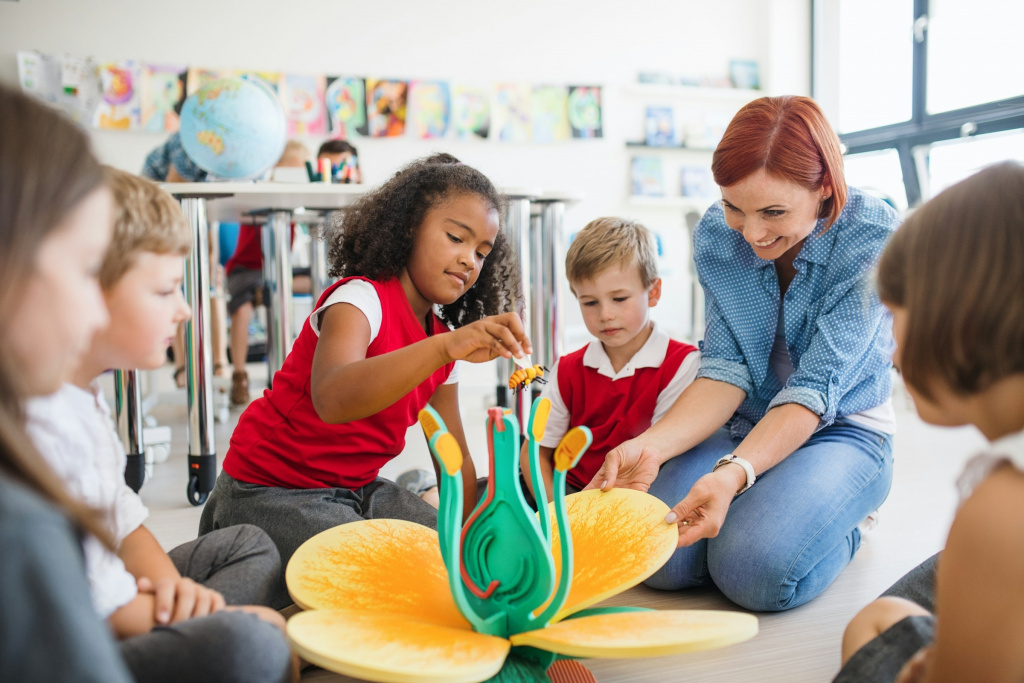
Since 2009, The Children’s Society has been documenting a concerning trend: a steady decline in children’s happiness. Earlier this year, the Children’s Commissioner revealed that there are more than a quarter of a million children still waiting for mental health support from the NHS. The impact of this unprecedented pressure is far-reaching, especially for educators, who are on the frontline of caring for and supporting children throughout their vital formative years.
With a sharp decline in children’s free play since the 1950s and research showing a decrease in children’s creativity since the 1990s, we’ve seen a disturbing pattern in children becoming progressively less empowered to make decisions, take risks and solve problems, with a steady increase in childhoods being filled with anxiety and depression.
As the burden falls ever more onto the school system and educators to ensure that they are nurturing children who are both academically successful and emotionally healthy, it’s understandable that this crisis is having a direct impact on educators, who are already under results-based pressures and facing a reduction in resources and support.
I want to present an idea to help inspire hope and take things right back to basics. This idea centres around a child’s first language – play. In exploring this, I will also set out the implications for schools, teachers and their professional development.
The power of play therapy
Play is the natural language of children. Before we learn to articulate our feelings with words, we use play to help express and understand our emotions. We use play to explore the world around us, learn creative problem-solving skills and experience new ways to relate to our peers, siblings, parents and teachers. Despite this, we frequently discount the truly transformative power that child-led play can have on nurturing our students’ wellbeing, and in turn their academic success.
The power of play came to me after a deeply personal loss. Having experienced the traumatic death of my mother when I was 15, I was left feeling unsupported and ill-equipped to navigate the turbulent waters of grief throughout my adolescence. It was in my search for understanding of my own experiences and helping other children who had experienced trauma that I discovered the transformative impact of play therapy.
Play therapy is a therapeutic modality which uses play as the means to help children express themselves. It allows a child to use a variety of arts, games, puppets, sand, music and role-play to work through and explore difficult emotions and experiences which they may not currently have words for.
Child-led play means that the child chooses and directs all aspects of the play, in whatever safe way they wish to, within the boundaries of the therapy room. This ‘free play’ in a contained, supportive environment helps children to make sense of their world and their experiences alongside a warm, predictable and consistent adult who fluently speaks the language of play as they do.
At age 23, I founded Clear Sky Children’s Charity, which provides play and creative arts therapy to children in schools across Oxfordshire. As I immersed myself in the field throughout my Master’s degree and in working with hundreds of children as a therapist, a striking pattern emerged; the children who made the most progress during therapy were those whose parents adopted the same approach we used in play therapy at home. Since then, I’ve been on a mission to help spread the word and educate on how everyone can use child-led play as a tool to support children’s wellbeing.
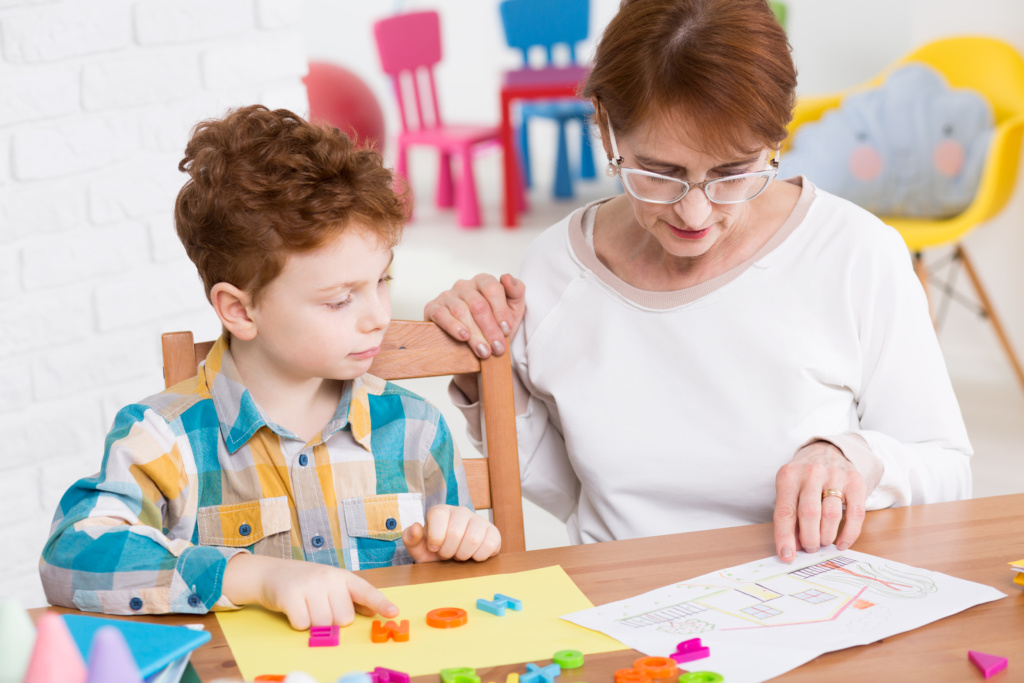
The benefits of play therapy are wide-reaching; perhaps most significant is its ability to improve emotional and behavioural challenges. Data from Play Therapy UK shows that between 77-84% of children experience positive change in their emotions and behaviour as a result of seeing a play therapist. By reducing anxiety, enhancing emotional regulation and improving self-esteem, play therapy indirectly supports children’s ability to learn and, in turn, their academic outcomes.
Why is play needed now more than ever?
Play is far from frivolous; it’s a fundamental aspect of child development. It’s as essential to a child’s development as balanced nutrition is to their physical health. Through play, children process and make sense of their experiences, developing crucial emotional and cognitive skills that serve as the foundation for lifelong learning and wellbeing.
Play has never been needed more than now. We are in the midst of a significant shortage of mental health professionals in the UK, as reported by the British Medical Association in 2022. Play Therapy UK estimates that there’s a need for 23,400 more play therapists across the country to meet the needs of all children experiencing emotional and behavioural difficulties.
It’s clear that we are facing a stark disparity in resources compared to need. This is where child-led play techniques – starting in the classroom and encouraged in the home – could be game-changing for the mental health of our next generation.
It has become clear throughout my work that educators, and especially early years practitioners, understand and agree that play is important. But the definition of what play is, why it’s so important and how to put this into practice varies widely across different settings. It’s therefore crucial that educators understand how this natural process is supportive of children’s development so that we can optimise our settings appropriately and allow play to have the space within children’s lives that it deserves.
Play serves as a natural stress reliever for children. In our adult-centric view of the world, we often underestimate the stressors that children face. From navigating social relationships to taking on new academic challenges, children’s lives are filled with potential sources of anxiety. Play provides a safe outlet for these emotions, allowing children to work through their fears and frustrations in a controlled environment.
The benefits of play extend far beyond emotional regulation. Through play, children enhance their creativity and problem-solving abilities. When a child builds a fort out of blankets and chairs, they’re not just creating a cosy hideout; they’re engaging in complex spatial reasoning, testing hypotheses about structural integrity and creatively repurposing everyday objects.
These skills form the foundation of innovative thinking, a trait that is essential for us as a species, as it allows us to continue evolving and solving the increasingly complex social and environmental challenges that we are facing.
But perhaps one of the most powerful applications of play is its role in strengthening the relationships between children and the adults who care for them. When grown-ups engage in play with children, they’re doing more than just passing time; they’re building a foundation of trust, communication and mutual understanding. These key elements of a healthy relationship support the development of secure attachment with safe adults in the child’s life, the basis for which will support the child’s development for years to come.
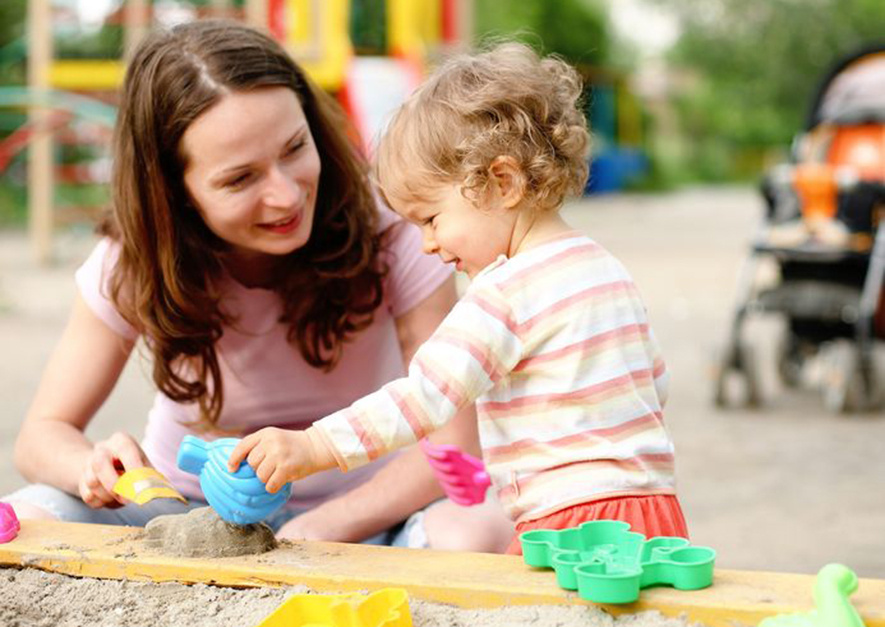
Renowned psychologist Bessel Van Der Kolk described the parent-child connection as the ‘most powerful mental health intervention known to mankind.’ Play is a vehicle for which a strong and connected relationship can be formed between parent and child, which has significant positive impacts on a child’s emotional development.
High parental sensitivity – characterised by responsiveness, positivity and acceptance – is a predictor of secure attachment. This secure attachment acts as a protective factor for children’s mental health throughout their lives, fostering resilience and emotional stability.
For many children, some of the most consistent and significant adults in their lives will be those that they interact with daily at school. I believe that all adults who work with children can have a profound impact beyond academic education by building healthy, secure relationships with children in their care to support the development of good mental health. Play is the vehicle through which we can practise and activate the skills required to foster an optimal environment for secure attachment relationships to be built with the children we work with.
Play as a right, not a privilege
Despite the UN citing that every child should have a right to ‘relax, play and take part in a wide range of cultural and artistic activities’, play is often not prioritised as being as important as other activities which directly impact a child’s physical or academic growth.
This attitude towards play can often be seen in one of the more harmful approaches to undesired behaviour in the classroom – the removal of a child’s playtime as a disciplinary tool. A recent analysis published by The Guardian outlines how children are facing a ‘brutal loss’ of time and space to play in state schools, with increased pressures to fit more learning into the day and a reduction in the number of minutes children have for playtime.
In fact, this research shows that since 1995, there’s been a loss of 45 minutes of play a week for children aged 5-7, a 65-minute loss for secondary school-aged pupils (equivalent to one whole day’s worth of breaks less per week) and even the youngest children have lost 14 minutes of play from their school week.
Considering that children are already facing a reduction in time spent playing with their peers, it would be counterintuitive to punish children who are struggling in the classroom environment with further deprivation and disadvantage through a loss of play. In this approach, we are inadvertently exacerbating behavioural issues by removing one of the most powerful tools for emotional regulation and social learning.
By reframing discipline through the lens of play and relationships, we can create more positive, effective strategies for managing behaviour in schools. But to truly embrace this approach requires systemic change.
In 2021, The British Psychological Society (BPS) launched the ‘Time to Play’ campaign, which called on policymakers to restore 10 minutes of play a day to reverse the decline in play times in schools. Alongside UCL, the campaign called for legislation to protect children’s playtime and to stop play being withheld as a disciplinary measure.
As yet, nothing has been written up into legislation, but it’s hoped that a national policy will be established that protects children’s playtime from being withheld. This policy would recognise play not as a privilege to be earned, or a reward for good behaviour, but as a fundamental need and right of every child.
This is why I believe that play education is crucial for parents and educators alike. Play is a powerful and free tool we have at our disposal that, when implemented in effective ways, can have profound impacts on children’s development. We want to use the power of play to its full advantage, but there’s often a lack of understanding around how we can actually put this into practice, especially when balancing so many different priorities.
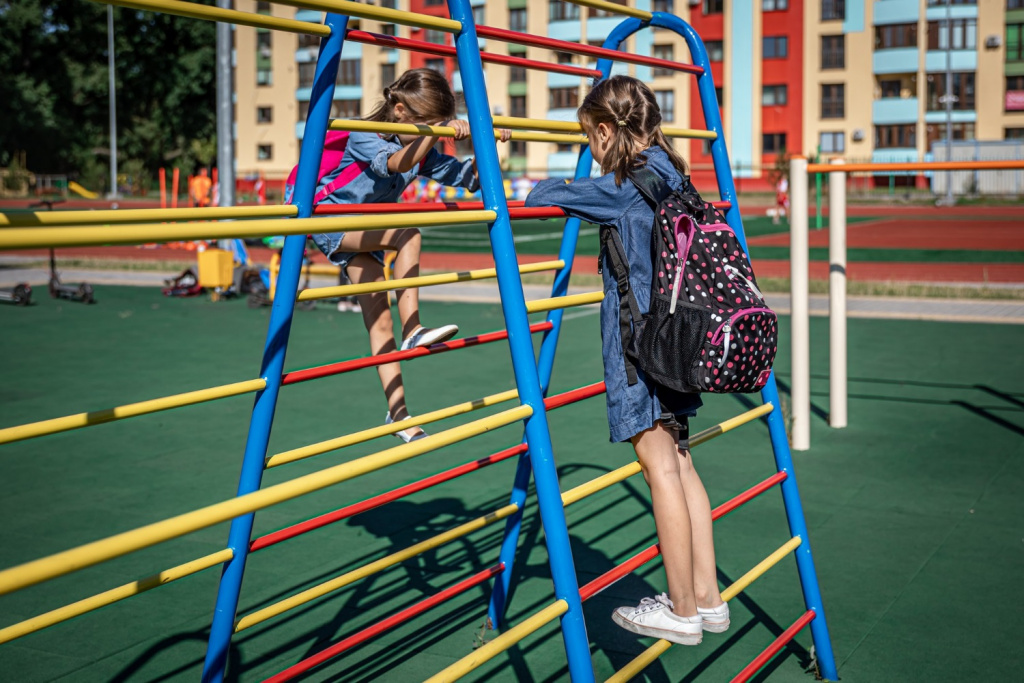
So how can schools harness the power of play and give it the space and time it deserves whilst championing the benefits and supporting parents to do the same at home?
Firstly, we can build strong relationships with our students through play. We must remember that even when children misbehave, they need connection with trusted adults. It is more helpful to reframe the notion of ‘attention-seeking’ behaviour to ‘attachment-seeking’ behaviour. More often than not, children who are disruptive in class are looking for safe adults to help them regulate their emotions. A cry for attention is often a cry for connection.
Instead of isolating a child who’s acting out, we can use play to engage them in co-regulatory activities. Sending a dysregulated child into isolation further exacerbates the symptoms of dysregulation. Being left alone with your overwhelming feelings can be extremely scary for a child. But by spending time with a calm adult when dysregulated, children can experience and ‘borrow’ the calm nervous system of the adult to help them regulate their emotions.
This is known as co-regulation and it’s an essential part of developing self-regulation skills. Children need calm role models who can support them during times of challenge, and play is an excellent way to practise co-regulation.
One idea for this kind of approach is to offer ‘cool-down’ play sessions for children who are struggling to focus and learn, providing a chance for them to calm down and reset in a positive way. Sorting activities, such as organising objects by colour or size (like pencils, building blocks or coins), can be incredibly calming and provide a sense of control for the child.
Individual teachers or classes might designate daily ‘play periods’ in addition to traditional playtimes, recognising that play is not just about physical activity but cognitive and emotional development as well. They might create ‘play corners’ in classrooms, allowing for brief play breaks for small groups of children that can help refocus attention and reduce stress to help prevent behavioural outbursts.
Often, we might get caught up with concerns that we don’t know how to play effectively; we might find play boring, or not know what we should be doing. Child-led play takes this pressure to have all the right answers or to direct the play off us adults and instead empowers children to be the experts at playtime. Maria Montessori taught us that ‘Play is the work of the child’, and where we might be used to leading, teaching and guiding, it can feel like a gear change to let the children take the lead.
One technique to try is metaphorically ‘sitting on your hands’ when children are playing. Observe, be interested and get involved when asked, but your role is to hold the space for them to play. As the adult, you hold the boundaries for the play – e.g. we don’t break the toys, we don’t hurt each other, we stay in the space – but you don’t guide or direct it. Let the children do their ‘work’.
Five minutes of play, every day
Alongside our change to the perception of play within the education system, schools are able to support childhood health and emotional wellbeing through encouraging consistent play at home. My work in play therapy over the years, and specifically throughout my Master’s, led me to create a programme of play education for parents.
Treasure Time was born out of the understanding that consistent play at home can have transformational effects on the parent-child relationship. In our modern world, where both parents often work full-time and children’s schedules are packed with extracurricular activities, it is understandable that parents already feel the pressure and stress associated with tasks asked of them by schools.
That’s why the Treasure Time play-at-home programme is centred around core pillars of accessibility: five minutes of play per day, with materials and play items found already in the house, and easy education tools for parents to guide them through this journey.
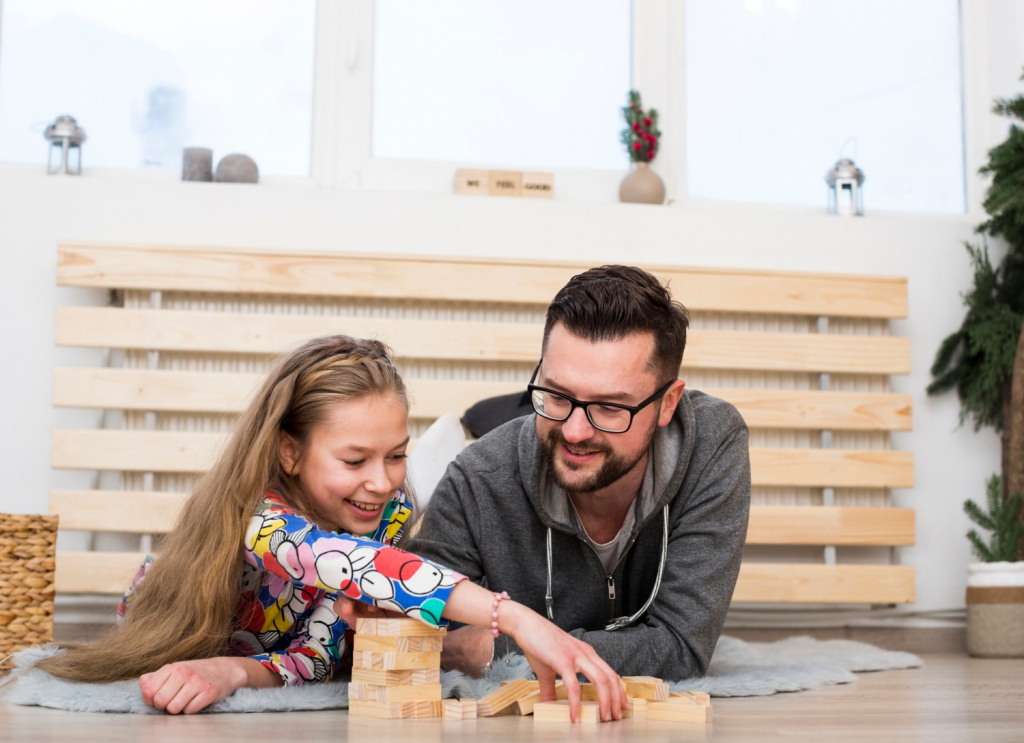
The power of five minutes of play a day lies in the consistency and cumulative effect of small, positive interactions that build into habits. Five minutes of parent-child play a day is 35 minutes of extra relationship-building play across the week. The hope is that parents and children will love it so much that they’ll consistently do more than the minimum five-minute daily recommendation.
The suggested materials used in these play sessions are intentionally simple and accessible. A box of basic items – for example: some crayons, playdough, a few figurines – is all that’s needed. The magic is in the interaction, not the materials. This simplicity not only makes the practice more accessible to families of all socioeconomic backgrounds, but also encourages creativity and imaginative play.
To ensure these brief play sessions are truly focused and meaningful, we advocate for a distraction-free zone. In our technology-driven world, this often means actively choosing to put devices aside to guarantee uninterrupted, focused time together.
Equally important is the principle of child-led play. For these five minutes, the child is in charge. They choose the activity, they set the pace and they make the rules within a simple, safe container of this special play-time. This shift in power dynamics is profoundly empowering for children, allowing them to express themselves freely and develop a sense of agency.
But perhaps the most crucial element of the Treasure Time approach is the skills we teach adults. We provide parents with simple techniques to maximise these short play sessions to build a secure attachment relationship between their child and themselves. These include active listening, reflecting feelings and responding to children’s emotions and non-verbal communication. These skills help create a nurturing play environment where children feel truly seen and heard.
By getting everyone on board – parents and teachers alike – we’re creating a network of support for children and the important adults in their lives, using the child’s language to make a true difference.
The Treasure Time Mission
At Treasure Time, our mission is to champion the UN’s Convention on the Rights of the Child and make play each child’s birthright. No matter their socioeconomic background or time restraints, we want to make it accessible and easy for parents and teachers to understand the power of child-led play and how to use it in their daily interactions with children, building a brighter future for our next generations.
The Treasure Time app will be launching to schools in 2025 and helping educate parents on the wide-reaching benefits of play, as well as providing key techniques to create impactful and effective play environments for their children.
We know the direct and important link that schools play within a child’s emotional wellbeing journey and we’re here to support both parents and educators in their all-important work to raise and educate classrooms of emotionally healthy, thriving children.
Guidance for schools and teachers
Empower student-led learning
Allow students to guide their own learning by exploring their interests and strengths. This can be done through project-based learning where students choose topics they are passionate about and create projects around them. Creative ways of of approaching this could be by allowing the children to choose how present their project. By offering a range of creative mediums to present their findings like junk modelling, poetry, art or drama, children can find ways to explore and express their passions in ways that are interesting to them.
Create playful conditions in the classroom
Creating playful conditions in the classroom is about creating a space where playfulness can happen spontaneously for both children and teachers. We can approach creating playful conditions in two ways: physically in the environment and with our attitude and approach towards children. In a physical sense, we can design the classroom in a way that encourages exploration and creativity. This includes flexible seating arrangements, open spaces for movement and areas for hands-on activities.
More importantly, we can create safety within the way that we hold the space for children. When we hold clear, consistent boundaries and provide predictable routines and responses to children, it allows them to explore more confidently. When they know what to expect, they can open themselves up to take risks and embrace mistakes as opportunities for growth.
Playful learning
We can apply a playful lens to almost everything that needs to be taught in school. Using games, puzzles and role-play activities that align with the curriculum is one way you can bring play into your teaching. For example, maths puzzles and riddles can help students practice mathematical concepts in a fun and engaging way.
Bringing more collaborative learning into the classroom and encouraging peer-to-peer learning helps children not only with their learning but also with their development of social skills. This can be done through team projects, group discussions and cooperative games.
Implications for professional development
For teachers, educators and assistants to gain more knowledge, skills and understanding of the importance of play, there is a good deal of resources and training available to underpin practice in the classroom and beyond. Particularly important is the idea of nurturing a growth mindset to allow flexibility and plasticity within teaching practice to break away from rigidity of teaching methods and embrace more child development-friendly tools. Some of the resources and training on offer include the following:
Play-based learning in the UK
- The Case for Play in Schools: A Review of the Literature – This comprehensive review by Outdoor Play and Learning (OPAL) explores the academic evidence supporting play-based learning in UK schools.
- Rethinking Curriculum: Play-Based Learning and Continuous Provision – This review summarises research evidence around a play-based curriculum and its impact on primary school practice in the UK.
- Play-Based Learning in the Primary School – This book by SAGE Publications Ltd examines how play can be used to increase engagement, motivation and fun in learning situations, specifically within the UK context.
Growth mindset in UK education
- Changing Mindsets – Trial by EEF (Education Endowment Foundation) – This trial explores the impact of growth mindset workshops on students’ progress in English and maths. The findings suggest some evidence of promise, particularly in English.
- Growth Mindset Thinking and Beliefs in Teaching and Learning – This research brief provides insights into growth mindset theory and its applications in primary and secondary education in the UK.
- Is Growth Mindset Real? New Evidence, New Conclusions – This article discusses the mixed evidence on growth mindset and its implications for teaching and learning the UK.
We are offering every reader of Professional Development Today access to our ‘Play Matters: Game-Changing Strategies for Improving Childhood Wellness in Education’ webinar, where you’ll learn more about the transformative power of play, as well as techniques and tools you can begin to use today in your classroom.
Join the webinar by visiting schools.treasuretime.co.uk.
Sophia Giblin is the founder of Treasure Time and established Clear Sky Children’s Charity at age 23. Her innovative approach to strengthening parent-child relationships through play was featured in Paul Lindley’s ‘Raising the Nation’ manifesto, where she proposed a National Play at Home Scheme to tackle declining childhood happiness. With a Master’s in Play Therapy, Sophia is transforming children’s emotional wellbeing by empowering parents with practical, playful tools for nurturing resilient, happy children.
Register for free
No Credit Card required
- Register for free
- Free TeachingTimes Report every month